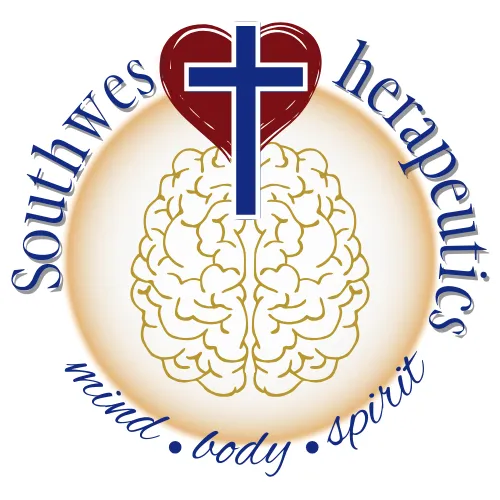
Addressing Depression: Recognizing Signs and Symptoms Early On
Understanding Depression: More Than Just Feeling Sad
Depression is one of the most prevalent mental health conditions, yet it remains widely misunderstood. While many people equate depression with fleeting sadness or temporary demotivation, the reality is far more complex. Depression extends beyond momentary emotional distress; it is a clinically recognized psychological disorder that significantly affects cognitive processes, emotional regulation, and daily functioning (Meehan & Zerr, 2022). Unlike transient feelings of sadness that arise in response to life’s disappointments, clinical depression persists over time and disrupts an individual’s ability to engage in work, maintain relationships, and find pleasure in previously enjoyable activities (Karyotaki et al., 2021).
The frequent use of the term "depression" in everyday language has contributed to its dilution, often reducing it to a synonym for feeling down or discouraged. However, clinical depression is distinct from normal emotional fluctuations. While sadness is a natural response to adversity and typically subsides with time, depression as a disorder involves persistent symptoms such as overwhelming fatigue, cognitive impairments, disruptions in sleep and appetite, and, in severe cases, suicidal ideation (Meehan & Zerr, 2022). Additionally, cultural and societal factors shape the manifestation and perception of depression, influencing whether individuals recognize their symptoms or seek help (Hendrie, 2022).
A key distinction between everyday sadness and depressive disorders lies in the underlying biological, psychological, and social mechanisms. Clinical depression is linked to neurobiological changes, including imbalances in neurotransmitters such as serotonin and dopamine, as well as structural alterations in brain regions associated with mood regulation (Karyotaki et al., 2021). Furthermore, while normal sadness often has a clear cause and improves with time or positive changes in circumstances, clinical depression can persist regardless of external conditions, making it a chronic and debilitating disorder if left untreated.
By differentiating between temporary sadness and clinical depression, it becomes evident that depression is not simply an emotion but a multifaceted disorder that demands appropriate recognition, intervention, and treatment. Without this distinction, the true severity of depression risks being overlooked, potentially discouraging those affected from seeking the professional help they need.
Depression is not a weakness and not something that can simply be “snapped out of.” It requires proper care, support, and treatment—just like any other health condition. Early recognition and intervention can make a significant difference in recovery and quality of life.
At Southwest Therapeutics, we are committed to helping individuals recognize the signs of depression and guiding them toward personalized treatment options for better mental well-being.
Recognizing the Early Signs of Depression
Depression can present differently in each individual, but there are common emotional, psychological, physical, and behavioral symptoms that may signal a more serious underlying condition. Identifying these early signs is crucial for timely intervention and effective treatment. Emotional distress, persistent fatigue, changes in sleep and appetite, and withdrawal from daily activities may all indicate the presence of depression (American Psychiatric Association [APA], 2022). Understanding these symptoms can help individuals seek appropriate support before the condition worsens. Depression, as classified in the Diagnostic and Statistical Manual of Mental Disorders, Fifth Edition, Text Revision (DSM-5-TR), manifests in a range of emotional, psychological, physical, and behavioral symptoms. These symptoms must persist for at least two weeks and significantly impair daily functioning to meet the criteria for Major Depressive Disorder (American Psychiatric Association [APA], 2022).
1. Emotional and Psychological Symptoms
✔ Persistent feelings of sadness, hopelessness, or emptiness
✔ Loss of interest or pleasure in hobbies or activities once enjoyed
✔ Feelings of worthlessness, excessive guilt, or self-blame
✔ Increased irritability, frustration, or agitation
✔ Difficulty concentrating or making decisions, or remembering details
✔ Recurrent thoughts of death, suicidal ideation, or suicide attempts (If you or a loved one is struggling, with these, seek help immediately. Call or text 988 for free, confidential support 24/7. You are not alone—help is available)
2. Physical Symptoms
✔ Fatigue or loss of energy, even without significant exertion
✔ Sleep disturbances (insomnia or hypersomnia)
✔ Changes in appetite or weight (significant weight loss or gain)
✔ Unexplained aches and pains (headaches, muscle pain, digestive issues)
✔ Psychomotor agitation or retardation (observable restlessness or slowed movements)
3. Behavioral Symptoms
✔ Withdrawing from social activities and relationships.
✔ Decreased motivation and productivity at work, school, or home
✔ Increased reliance on substances such as alcohol or drugs
✔ Neglect of personal hygiene and self-care
✔ Engaging in reckless or self-destructive behaviors
Identifying these symptoms early is essential for proper diagnosis and treatment. Depression is a complex disorder influenced by biological, psychological, and environmental factors, requiring professional intervention when symptoms persist and disrupt daily life (APA, 2022). If you notice these signs in yourself or someone you care about, seeking professional help can be a crucial step toward recovery.
Why Early Intervention Matters
Ignoring or dismissing symptoms of depression can have serious long-term consequences, leading to worsening mental and physical health. Meehan & Zerr (2022) postulate that untreated depression significantly increases the risk of:
❗ Chronic health conditions (heart disease, diabetes, weakened immune system)
❗ Substance abuse as a form of self-medication
❗ Difficulties in relationships, work, and daily responsibilities
❗ Suicidal thoughts or behaviors
If you or someone you know is in crisis, seek immediate help from a mental health professional or contact a crisis hotline such as 988, the Suicide & Crisis Lifeline.
Seeking help early can provide individuals with the tools, strategies, and support needed to manage depression and lead a healthier life.
How Therapy Helps in Treating Depression
Therapy is one of the most effective treatments for depression. At Southwest Therapeutics, we offer tailored therapeutic strategies designed to empower individuals in managing their mental well-being.
Types of Therapy for Depression
1. Cognitive Behavioral Therapy (CBT)
Cognitive Behavioral Therapy (CBT) helps individuals recognize and challenge negative thought patterns that fuel depression. By learning to reframe these thoughts, individuals can develop healthier coping strategies and improve their emotional well-being. Research shows that engaging in CBT techniques, such as guided self-reflection and structured exercises, can enhance treatment outcomes by fostering more adaptive thinking and behaviors (Yew et al., 2021). Through this process, individuals gain practical skills to manage their emotions and navigate life’s challenges more effectively.
2. Dialectical Behavior Therapy (DBT)
Dialectical Behavior Therapy (DBT) is especially helpful for individuals experiencing intense emotional distress. This approach equips individuals with practical skills in mindfulness, emotional regulation, and distress tolerance, enabling them to manage overwhelming emotions more effectively. Research highlights DBT’s effectiveness in helping individuals develop healthier coping strategies, particularly for those with treatment-resistant depression, by fostering emotional balance and resilience (Gilbert et al., 2023). Through structured techniques, individuals learn to navigate distressing situations with greater control and stability.
3. Medication Management
For some individuals, therapy alone may not provide sufficient relief from symptoms of anxiety and depression. In such cases, medication prescribed by a psychiatrist can help stabilize mood and regulate brain chemistry. Research indicates that combining antidepressants with therapy can enhance treatment outcomes, offering a more comprehensive approach to managing symptoms (Leahy, 2017). This integrative method allows individuals to develop coping strategies through therapy while benefiting from the biochemical support that medication provides.
What to Expect When Seeking Help at Southwest Therapeutics
Many people hesitate to seek therapy because they are unsure of what to expect. Here’s how our process works:
Step 1: Initial Consultation
Your journey begins with a confidential therapy evaluation where we discuss your symptoms, concerns, and goals for treatment. This allows us to develop a therapy plan tailored to your unique needs. Based on the severity of your symptoms, we will assess the appropriate frequency and duration of treatment. This evaluation allows us to determine an optimal treatment schedule that aligns with your clinical needs while accommodating your availability.
Step 2: Regular Therapy Sessions
Therapy sessions provide a safe, supportive space to explore emotions, develop coping strategies, and work toward healing.
Step 3: Monitoring Progress and Adjusting Treatment
Depression treatment is not one-size-fits-all. As you progress, your therapist will work with you to adjust treatment methods to ensure the best outcomes.
At Southwest Therapeutics, our goal is to empower individuals with the skills and support they need to manage depression and restore their daily functioning and overall well-being.
How to Support a Loved One Struggling with Depression
If someone you care about is showing signs of depression, here are ways you can offer support:
💙 Listen without judgment – Let them express their feelings without trying to “fix” them.
💙 Encourage professional help – Offer to help them find a therapist or attend an appointment with them.
💙 Check in regularly – A simple text or call can remind them they are not alone.
💙 Be patient – Recovery takes time, and small steps matter.
💙 Learn about depression – Understanding the condition can help you provide better support.
If you're interested, scheduling a psychoeducation session can be valuable in learning how to assist them based on their stage of change—whether they are in the action, maintenance, or self-supporting phase.
If your loved one is experiencing intrusive thoughts of self-harm, engaging in self-injurious behavior, or expressing suicidal thoughts, seek immediate professional help or call 988, the Suicide & Crisis Lifeline, for 24/7 support.
Final Thoughts: There Is Hope and Help Available
Depression can feel isolating, but you are not alone. Seeking help is a courageous step toward healing and a brighter future.
At Southwest Therapeutics, we are committed to providing compassionate, evidence-based care to help individuals overcome depression and regain their sense of well-being.
💚 Don’t wait to seek support—your mental health matters.
📞 575-936-4227
🌐 https://swtherapeutics.com/
References:
American Psychological Association. (n.d.). Understanding depression. https://www.apa.org/topics/depression
American Psychiatric Association. (2022). Diagnostic and statistical manual of mental disorders (5th ed., text rev.). Washington, DC: American Psychiatric Publishing.
Gilbert, K., Codd, R. T., Hoyniak, C., Tillman, R., Baudinet, J., Pires, P. P., Hempel, R., Russell, I., & Lynch, T. R. (2023). Processes of change in a randomized clinical trial of radically open
dialectical behavior therapy (RO DBT) for adults with treatment-refractory depression. Journal of Consulting and Clinical Psychology, 91(2), 71-81. https://doi.org/10.1037/ccp0000795
Hendrie, H. C. (2022). Cultural depression. International Psychogeriatrics, 34(11), 1003-1003. https://doi.org/10.1017/S1041610222000734
Karyotaki, E., Efthimiou, O., Miguel, C., Maas genannt Bermpohl, F., Furukawa, T. A., Cuijpers, P., Riper, H., Patel, V., Mira, A., Gemmil, A. W., Yeung, A. S., Lange, A., Williams, A. D., Mackinnon, A., Geraedts, A., van Straten, A., Meyer, B., Björkelund, C., Knaevelsrud, C., . . . Individual Patient Data Meta-Analyses for Depression (IPDMA-DE) Collaboration. (2021). Internet-based cognitive behavioral therapy for depression: A systematic review and individual patient data network meta-analysis. JAMA Psychiatry, 78(4), 361-371. https://doi.org/10.1001/jamapsychiatry.2020.4364
Leahy, R. L. (2017). Treatment plans and interventions for depression and anxiety disorders. Guilford Press.
Mayo Clinic. (n.d.). Depression (major depressive disorder): Diagnosis & treatment. https://www.mayoclinic.org/diseases-conditions/depression/diagnosis-treatment
Meehan, Z. M., & Zerr, C. L. (2022). Depression. Biofeedback, 50(2), 34-50. https://doi.org/10.5298/1081-5937-50.2.03
National Alliance on Mental Illness. (n.d.). Depression and mental health. https://www.nami.org/About-Mental-Illness/Mental-Health-Conditions/Depression
National Institute of Mental Health. (n.d.). Depression. U.S. Department of Health & Human Services. https://www.nimh.nih.gov/health/topics/depression
Yew, R. Y., Dobson, K. S., Zyphur, M., & Kazantzis, N. (2021). Mediators and moderators of Homework–Outcome relations in CBT for depression: A study of engagement, therapist skill,
and client factors. Cognitive Therapy and Research, 45(2), 209-223. https://doi.org/10.1007/s10608-019-10059-2



